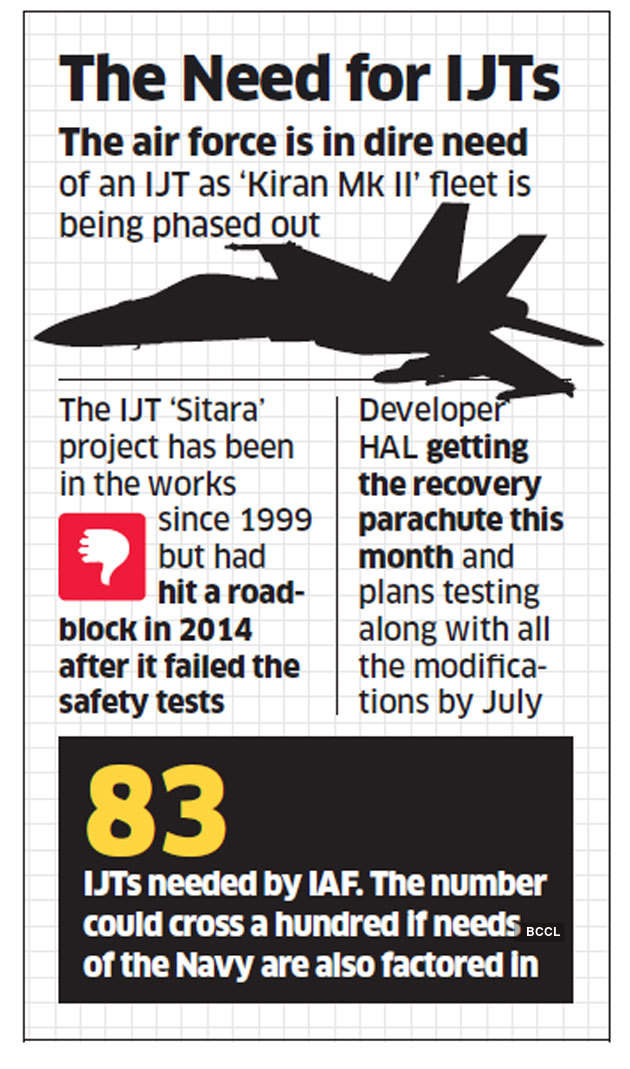Spin Test In July May Revive Intermediate Jet Trainer Plan

HAL chairman R Madhavan has told ET that a spin recovery parachute is being integrated onboard the test aircraft this month, following which it would be put through a series of tests to prove that it meets service requirements. The air force is in dire need of an IJT as ‘Kiran Mk II’ fleet is being phased out, putting a strain on its pilot training program
NEW DELHI: The indigenous program to develop an intermediate jet trainer (IJT) could get back on track with a crucial ‘spin recovery’ test in July, with developer Hindustan Aeronautics Limited (HAL) confident that modifications carried out on the test aircraft would prove successful.
HAL chairman R Madhavan has told ET that a spin recovery parachute is being integrated on-board the test aircraft this month, following which it would be put through a series of tests to prove that it meets service requirements.
The air force is in dire need of an IJT as ‘Kiran Mk II’ fleet is being phased out, putting a strain on its pilot training program. The IJT ‘Sitara’ project has been in the works since 1999 but had hit a roadblock in 2014 after it failed the safety tests.
 After facing difficulties in the Spin Test —in which the plane is stalled midair and recovered as part of the training process — a foreign consultant was hired by HAL and structural changes have been carried out. “We are getting the recovery parachute this month and once we integrate it, we can restart the testing along with all the modifications that BAR (Bihrle Applied Research) has given. We will start the first spin tests by July and once that happens, we will be back in the game,” Madhavan said.
After facing difficulties in the Spin Test —in which the plane is stalled midair and recovered as part of the training process — a foreign consultant was hired by HAL and structural changes have been carried out. “We are getting the recovery parachute this month and once we integrate it, we can restart the testing along with all the modifications that BAR (Bihrle Applied Research) has given. We will start the first spin tests by July and once that happens, we will be back in the game,” Madhavan said.
The indigenous aircraft has gone through a significant modification, including an increase in the length of the rear fuselage and a redesigned rudder placement. A timeline for final development would be available only after the spin tests are completed.
“We have seen the mathematical models and in this case we are quite confident that the modifications will work and we can meet the required tests,” the HAL chairman said. The spin recovery parachute being integrated is a fail safe mechanism.
HAL is also working on changes in the Russian origin engine of the IJT. “The modifications have been done and we expect the life to be increased from just about 100 hours right now,” Madhavan said.
If the IJT clears tests, the deliveries can be carried out at an accelerated pace, given HAL already has 16 serial production aircraft ready that can be quickly modified. The air force has a requirement of 83 IJTs and the number could cross a hundred if the needs of the Navy are also factored in.


